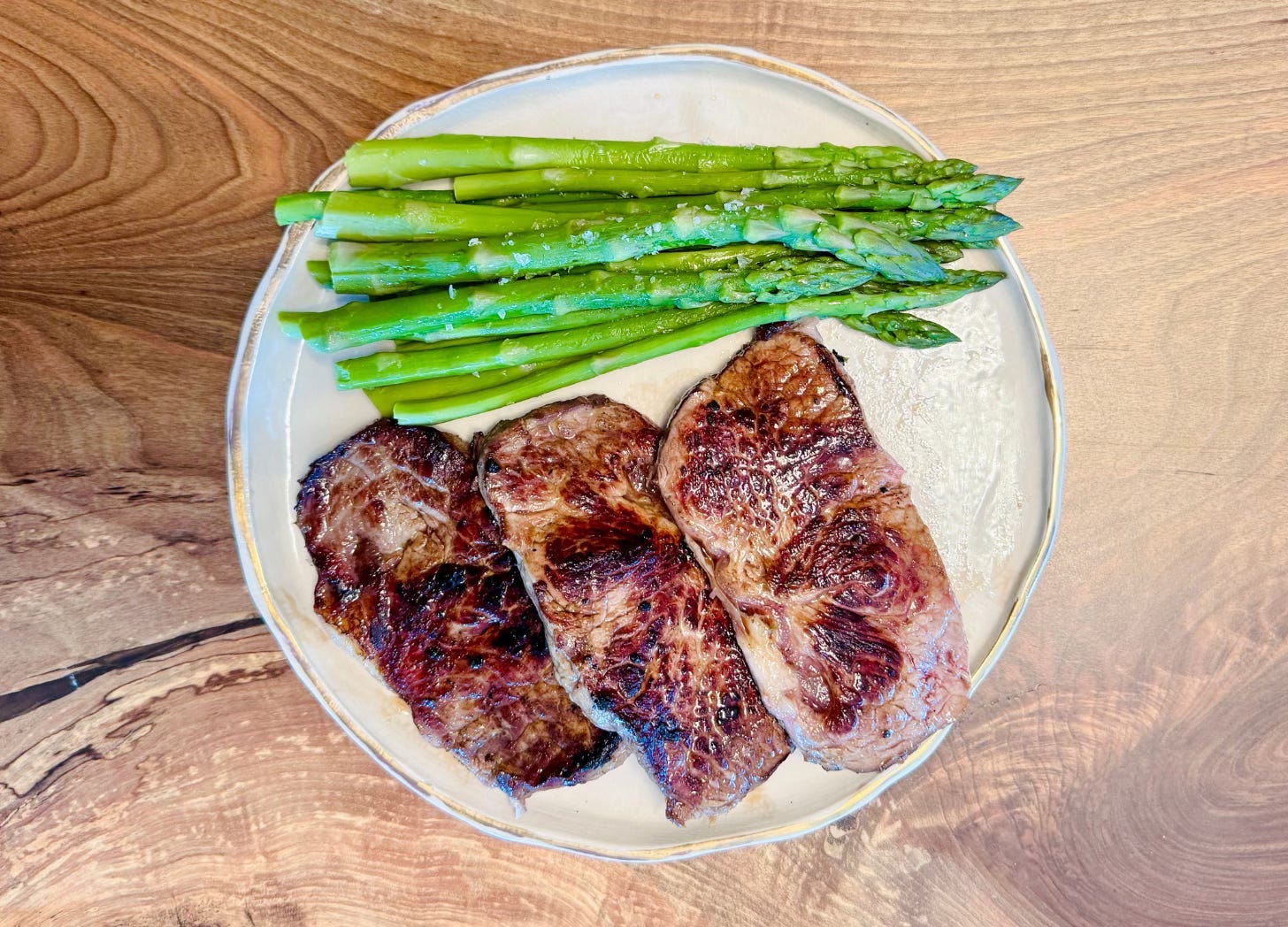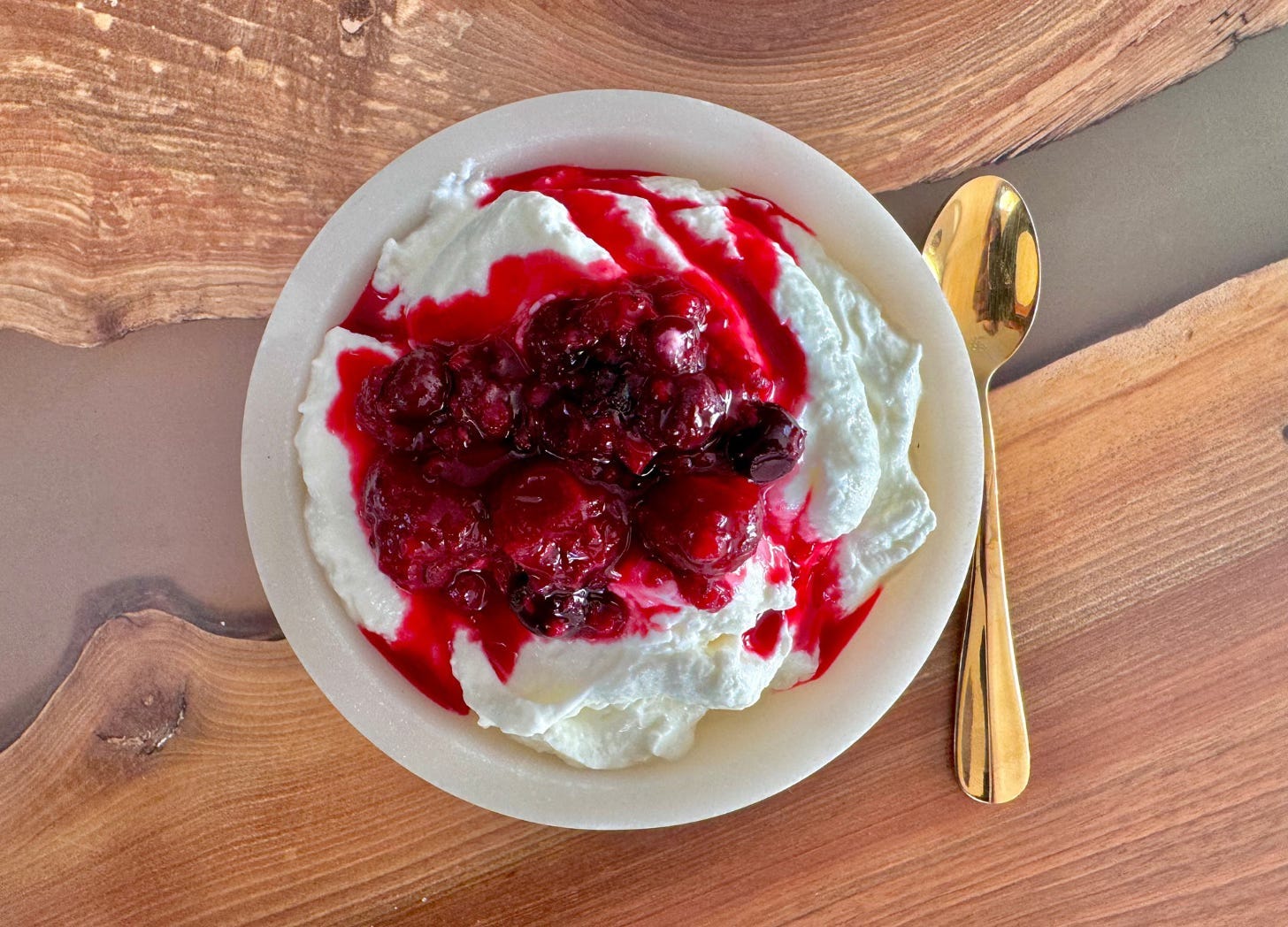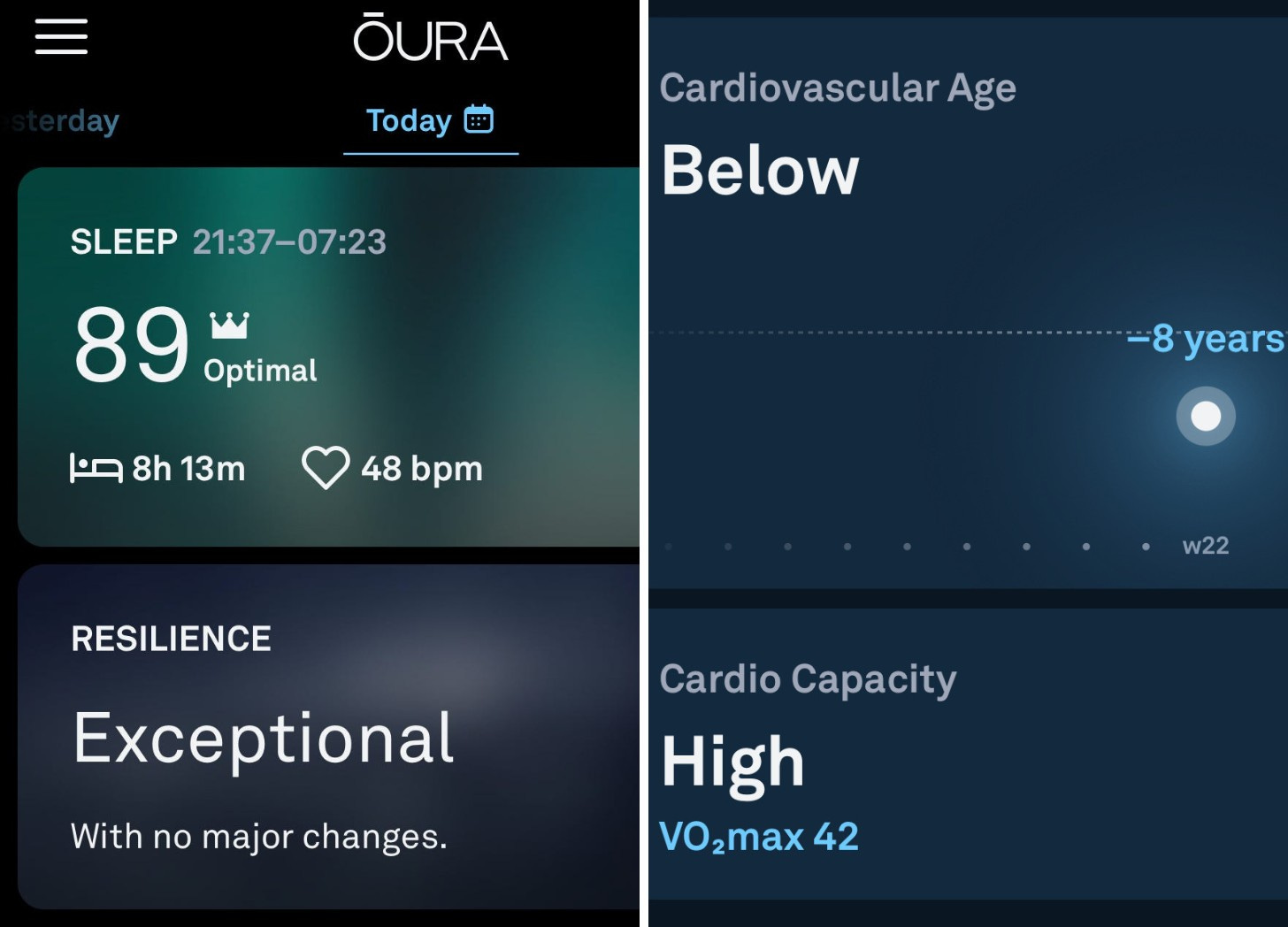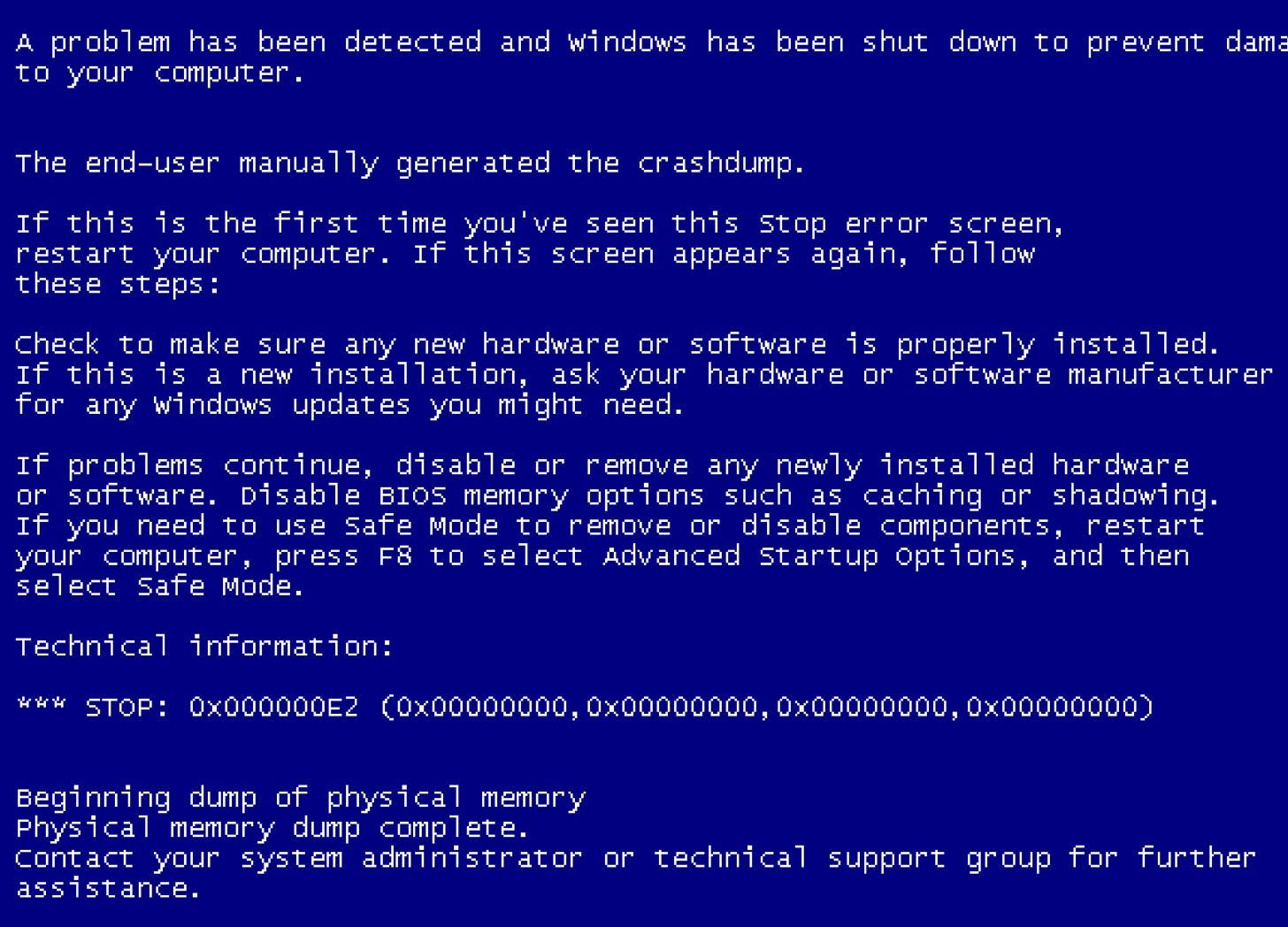Never eat after 6 PM!
The Myth Buster is back!
Lately, I have become better friends with asparagus.
I found a great source of beef meat and this was my meal last night at 8:45 PM.
This picture looks like it’s been made for Instagram, right?
I then had a half kilo of Skyr and home made jam – made by me, zero sugar added.
I ate until I was really full. That’s what I do every evening. And I’ve been doing for the past 14 years.
Then at 9.05 PM I was putting my kids to sleep. I did a bit of reading and at 9.30 PM I was sound asleep.
I sleep like a log and I am healthy as a horse.
Funny
I’m very amused by those classical tropes like:
“You shouldn’t eat after 6 PM” or “It’s not OK to eat before going to bed!”
Why?
“Umm…Because everything you eat in the evening gets stored as fat!”
Why?
“Umm…Because it slows down your metabolism!”
Why?
“Umm…Because you’re asleep!?!”
✅ GREAT QUESTION
I got a great question a few days ago. It went like this:
“Why do you think it’s beneficial to skip breakfast just to have that 14-15 hour fast window?
Wouldn’t it be better to eat in the morning and have another meal after lunch and then skip dinner?
That way, you would get the same fasting window while at the same time avoiding those extra calories in the evening – calories which the body doesn’t have the opportunity to consume, like it does during the day…
By the way, everything you eat in the evening gets stored as fat, right? Moreover, why would you encourage anyone to eat at 9 PM?”
BAM!
✅ UNICORNS
Just like how some people still believe Santa Claus is real, some people still believe that if you eat in the evening, you’ll get fat or you won’t get a good night’s sleep because digestion is in process.
✅ REMINDER
Our body has been equipped for millions of years with everything it needs for us to eat half a pig and digest it while you’re fast asleep.
So does it matter how many hours before sleep you eat? There are 3 scenarios at play:
📍 You experience gastric reflux
Your obese coworker who is an expert in nutrition can express as many opinions as she would like – it still wouldn’t matter.
You know better how many hours before bedtime you need to have dinner in order to avoid any issues.
By the way, did you know that if you give up carbs for a bit, there are chances that your gastric will go away as well?
Try it for a week, you might be surprised.
📍 Eating before bedtime and sleeping badly
You don’t need an international consultant with 30 certifications and 40 years of experience to tell you to go to bed after 1-2 hours after dinner.
📍 If you’re not stuffed, you won’t be able to sleep
This is my favorite category. I am included in this category. If I don’t eat or don’t eat enough in the evening, I can’t fall asleep.
✅ YOU KNOW EXACTLY
Again, you know what you have to do. Ignore the “impromptu specialists” and enjoy your life!
I promise you – if you are careful about WHAT you eat you’ll never gain weight after eating a late dinner, no matter HOW MUCH you eat!
Remember, you’ll never get outrageous advice or complicated strategies from us. That’s because everything we recommend, we have been applying ourselves for almost 15 years.
✅ BUT…DOESN’T IT MAKE ME GAIN WEIGHT?
Actually, THIS was the question.
Will I gain weight if I eat in the evening?
Weight gain comes when you eat energy that you are not consuming via physical labor or exercise.
If you ate more calories than your body needs in 24 hours…
…and you didn’t consume them via mechanical work (motion, movement), then they (the calories) will be stored in your body.
✅ PRACTICALLY
You have a “hose” and 24 hours to fill it with everything your body needs in order for it to do internal repairs:
protein;
fatty acids;
minerals and vitamins;
and energy (carbohydrates and fats).
✅ ENERGY UNITS
In our community, members in our program lose weight (If they need to) by an average of 1 kilogram a week without counting calories, calculating macro-nutrients or weigh their food.
(Those last 10 kilos are usually lost in about 10 months.)
The next example is purely theoretical. In order to reach a conclusion, we will use a measurement unit for energy: calories.
Or can we simply call them “energy units”?
Somehow, the word “calorie” has a negative connotation. Or perhaps it’s just me.
✅ CALORIMETRY
Your body consumes energy in order to repair organs / muscles.
Your body consumes a lot of energy in order to maintain a constant temperature of 37 degrees Celsius.
Your body uses energy when you are in motion: walking, running, going up stairs, carrying shopping bags, etc.
There are specialized centers in advanced countries which will tell you exactly “how many calories” your body will consume in 24 hours.
Let’s say you are a woman and you go to that specific center. You’ll get the report. It will maybe say 2002 calories (kcal) in 24 hours.
✅ THERMODYNAMICS 1
The first principle of thermodynamics goes a bit like this:
Energy cannot be created or destroyed – energy simply goes from one form to another.
✅ SOLAR ENERGY
Solar energy is captured by plants via photosynthesis.
For example, canola captures solar energy in the form of oil.
Another example would be that solar energy is captured by wheat in the wheat grain in the form of starch.
Flour is made from wheat. Pasta, bread, pretzels and biscuits are made from flour.
✅ WHAT GOES IN…
We eat pasta or bread and the starch in our body is transformed into glucose.
Glucose will pass from the intestine into the blood.
For normal people, glucose inside our blood is sent to the glucose deposits in our muscles and liver (around 300 to 400 grams).
The glucose reaching our liver is transformed into glycogen (it’s like a concentrated form of glucose).
For static people (most of them), who have their glucose reserves filled to the brim, the glucose in 2 pretzels is transformed into triglycerides by the liver.
Tryglicerides made by the liver are then sent by “bus” (the “buses” are called VLDL Cholesterol) into adipocytes (meaning the fatty tissue under the skin).
If your adipocytes are full (yes, that can happen), triglycerides are deposited in your abdominal cavity and your organs.
Many times, if subcutaneous fat cells are full, the level of triglycerides in the blood will remain high – meaning there is nowhere else for them to go.
But this is a story for another day.
✅ …MUST COME OUT
Let’s say we had dinner last night at 8 PM.
Digesting a meal usually takes 6 to 8 hours on average. Sometime during the night, while we sleep, digestion is over.
Our body constantly needs energy. When that energy is lacking, the body will order the liver to free up some glucose.
The liver then transforms glycogen back into glucose and releases it in the blood.
After a few hours, the level of glucose in the liver will go down and energy is needed elsewhere.
Triglycerides from adipocytes (fat cells) are released.
Triglycerides are then transformed into glucose and fatty acids (2 triglycerides = 1 gram of glucose and 6 fatty acids).
Fatty acids and glucose are released in the blood and sent towards the cells who need energy (all of them…).
In the presence of oxygen, mitochondria in the cells transform the glucose and / or fatty acids into ATP (Adenosine triphosphate) – meaning another form of energy which cells use to function.
This transformation will result in water and carbon dioxide (CO2).
Water is eliminated through urine and sweat and CO2 is eliminated through breathing back into nature.
⭐️ FUN fact: cyanide pills will stop the production of ATP in a few seconds – resulting in sudden death.
✅ THERMODYNAMICS 2
If energy cannot be destroyed, then it means that if you ate it and haven’t “burnt” it via physical exercise, then it for sure will remain stocked inside your body.
There is no other way.
Practically, if you live in the city and you don’t do manual labor (and you likely never will),
I don’t believe you “deserve” one single gram of “free” energy, no matter how “clean” or “healthy” it is.
Some people still believe that if something is healthy, then for sure it can’t make you fat.
Example 1
Freshly squeezed juices are natural so therefore healthy so therefore “non-fattening”.
But a 200 ml glass of freshly squeezed juice from bio oranges bring along 5 teaspoonfuls of sugar.
Yes, we know that if the sugat is “natural” then for sure it will not make you fat.
No, please, go ahead, drink 2 liters of freshly squeezed juice per day and come back after a month, tell us what happened.
Example 2
Cold pressed olive oil out of organic olives from Crete is healthy. So I’ll just added by the tablespoonful in my salad – because it’s non-fattening…
Well, just by the sleight of hand, you just added 4 tablespoons of it – and that’s nearly 500 calories…
Have I made you think?
✅ WEIGHT LOSS
There is only one true clinically tried and tested weight loss method so far: calorie / energy restriction.
If over 24 hours, your body needs 2002 calories (kcal) and you ate less than that amount, then you will have lost weight.
If your daily requirement is 2000 kcal and you eat 1500 kcal, then your body will access the rest from reserves and you will lose fat – 500 kcal worth (about 50 grams).
If your daily requirement is 2000 kcal and you eat 1000 kcal, then your body will access the rest from reserves and you will lose fat – 1000 kcal worth (about 100 grams).
If your daily requirement is 2000 kcal and you had zero (you had a 24h fast), then your body will access the rest from reserves and you will lose fat – 2000 kcal worth (about 200 grams).
If your daily requirement is 2000 kcal and you had 2500 kcal, then your body will STOCK UP the difference of 500 kcal into your bodily reserves and you will gain fat – 500 calories worth (about 50 grams).
✅ BLUE SCREEN
If your requirement for optimal functioning is 2000 calories:
But you eat 2500 calories from wild Peruvian duck with truffles, Tibetan goji, foie gras with sauce made out of pork that’s been fed acorns, wild Alaskan salmon and Sri Lankan capers – then you will gain 500 calories of fat.
But you eat 1500 calories from KFC, sodas and pretzels, then your body will need to access the rest from other reserves in order to keep you alive – so you will lose 500 calories of fat.
✅ LONG STORY SHORT
What I will write below is clinically and unequivocally tested – for over 500 years.
The only thing that matters over 24 hours is energy deficit.
If your requirement over 24 hours is 2000 calories but you eat 1500 calories over 7 meals, then you will lose weight.
If your requirement over 24 hours is 2000 calories but you eat 1500 calories over one meal, then you will lose weight.
If you have that meal in the morning, at lunch or at night – that’s irrelevant for the weight loss process.
The deficit is what is relevant. Practically, all you have is a body, an energy intake requirement and 24 hours.
The number of meals you have and the times you eat at don’t matter.
✅ I ONLY WANT TO HELP YOU
I’ve been struggling with keeping my weight down ever since the second grade so I always write from my heart.
I just want you to get a better understanding of what weight loss means and not to repeat my mistakes.
Thank you for your attention.
One more thing: would you be open to help me by supporting my writing with 20 Eurocents a day? The purpose is to transfer my science-based knowledge of weight loss which I accumulated in almost 15 years internationally.
By supporting my Substack with 20 Eurocents a day, you will have access to all my articles and what I write daily. Plus, you’ll get my recommendations for products and services. Zero affiliations, zero commissions, zero advertising.
All you have to do is click twice and it takes 10 seconds.
Click the button below.
Keep reading with a 7-day free trial
Subscribe to Valentin Bunea English Edition to keep reading this post and get 7 days of free access to the full post archives.





